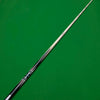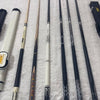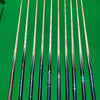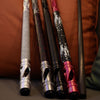"Beginner's Guide to Pool: Why Do You Need a Personal Pool Stick?"
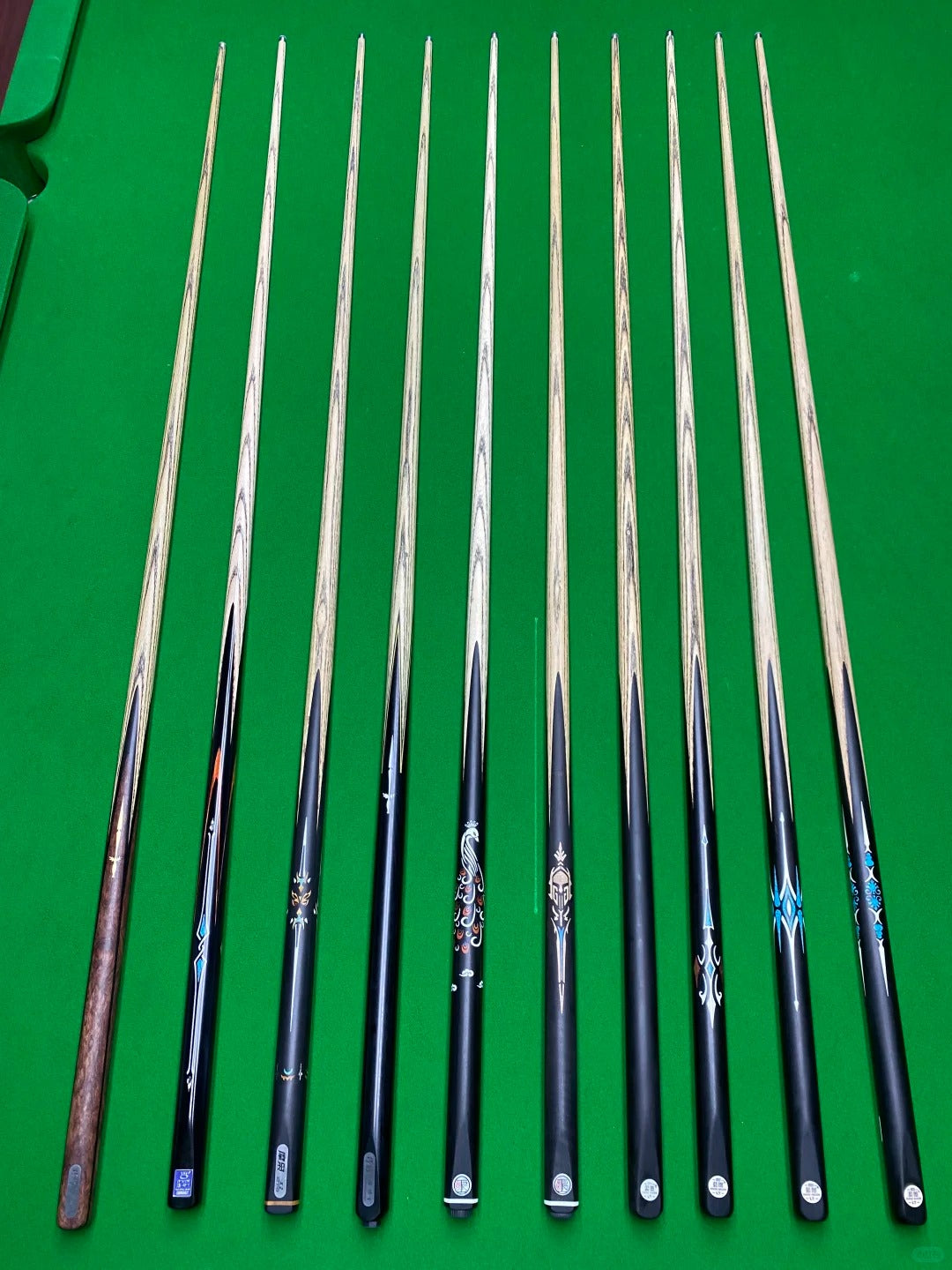
So, you've picked up the wonderful game of pool and are considering buying your own pool cue. If you've just been playing at a friend’s house or your local watering hole then it’s likely that the only stick you’ve ever used is the dreaded one - piece house cue. Those cues were fine when you were just “banging balls,” but now that you’ve taken an interest in the sport, it’s time to invest in some proper equipment to help you progress your game and enjoy the amazing game of billiards at a whole new level!
When you buy your first two - piece pool cue you are going to see immediate benefits from its superior performance and consistency. As you play with your own stick you will become familiar with it and will start to establish a “feel” for the way it shoots. Cutting in the 8 - ball or getting the cue ball to draw back just the right amount will become second nature. Having your own pool cue will really accelerate your journey to becoming a better pool player and that cue will be your trusted companion who’s right there with you as you achieve your goals!
Function / Performance
A decent quality, two - piece cue will always outperform any one - piece house cue at the local bar. Bar cues get roughed up and are likely to have damaged or inferior tips, warped shafts, loose ferrules. Your own pool cue will have a much higher quality shaft with a tip, ferrule and taper designed to shoot straighter and provide more spin when necessary. The wood itself will be properly cured (aged) making it stronger, more durable, and better able to maintain its straightness. The cue will also be perfectly balanced and shaped to provide a smooth, comfortable stroke.
Pool cues take the next big jump in performance when they feature “low - deflection technology.” Low - deflection cues are what the professional pool players use. They are built with special manufacturing processes and components that improve the accuracy of the shaft when applying side spin. They are also more forgiving on straight shots so low - deflection cues are great for any skill level, including beginners.
Consistency
Even buying an inexpensive two - piece cue will offer a greater level of consistency to your game. Just having a nice straight cue with a properly rounded tip will provide repeatable results giving you confidence that your equipment will perform as expected. This will allow you to focus more on your game and you’ll know that if you miss a shot it is not because of your pool cue.
Familiarity
The results from consistent practice really shines through when you become familiar with your cue. Having a cue stick of your own to shoot with means that you’ll learn its capabilities and limitations, as well as your own. It will begin to feel like an extension of your body that will increase your confidence and help you get “in the zone” faster.
Pool Cue Shaft
Good quality cues use North American grade “A” hard rock maple for their shafts because that type of wood has been found to provide the best feel, flexibility, and durability for all that is demanded of a pool cue shaft.
A few manufacturers have begun making pool cues with carbon fiber shafts. Carbon fiber cues represent the latest and greatest in performance and consistency but they are also considerably more expensive. For most players, a good quality maple shaft is more than enough and will perform reliably for many years or even decades.
Beware of low - quality, “big box store” cues that come in blister packs. Those cues are typically made from ramin wood, an inferior southeastern Asian wood known to be cheap, very grainy, and liable to warp if you look at it wrong. Other poor performing shaft materials like titanium and aluminum lack the flexibility and feel necessary to play well. Stay away from those types of pool cues!
Pool Cue Tip Styles
Most cues come standard with a medium hardness layered leather tip. Layered pool cue tips are constructed from multiple thin strips of leather that are pressed and glued together. This process creates a more consistent tip that holds its shape better (less maintenance). They are usually very high quality and we’d recommend staying with this type of tip unless you have a specific tip brand or hardness that you know you prefer to play with.
Layered tips are available in different harnesses, which will affect the feel of the hit and the longevity of the tip. Softer tips will hold chalk better, making them less likely to miscue, but the extra compression requires a bit more maintenance to keep a consistent shape. A harder tip requires less shaping, but doesn’t hold chalk as well which can lead to miscues if you don’t reapply chalk often. A medium tip hardness is designed to be the best of both worlds with plenty of grip and minimal maintenance.
Some pool cue brands come with a tip constructed from a single thick layer of pressed leather that is formed to shape. These tips are typically less expensive and provide a distinct hit that is preferred by some “old - school” players, but they will require more maintenance to keep shaped properly. If the pool cue you want to buy has this type of tip on it standard, you might want to consider upgrading to a layered one.
We offer tip upgrade services and can install any of our 80 + tips on your new pool cue. Upgrading the tip is one of the best things you can do to improve the feel and playability of a pool cue but it is usually not necessary with a new cue purchase.

Pool Cue Tip Sizes
The standard pool cue tip diameter is 12.75 mm – 13 mm, which is the perfect size for beginners. You can get plenty of spin and draw with the standard sized tip and it’s still very forgiving for straight shots. Some people like smaller tips, measuring 12 mm or less, because they can create more cue ball spin with less effort but they require more skill and precision to use effectively. Larger tips, around 13.5 mm or bigger, are better for players who prefer a more powerful shot and need a larger surface area to make contact with the cue ball. However, they can be a bit more difficult to control when it comes to fine - tuning the spin and direction of the cue ball.
In conclusion, investing in a personal pool stick is a significant step for any beginner looking to improve their game. It offers better performance, consistency, and familiarity, all of which contribute to enhancing your skills and enjoyment of the sport. When choosing a pool cue, pay attention to the shaft material, tip style, and tip size to find the one that best suits your playing style and preferences. With the right pool cue in hand, you'll be well on your way to becoming a better pool player.
